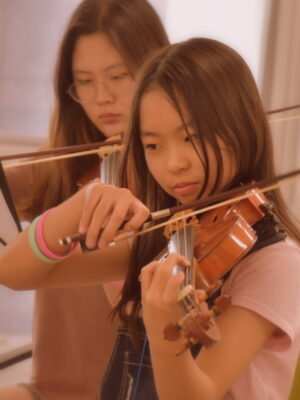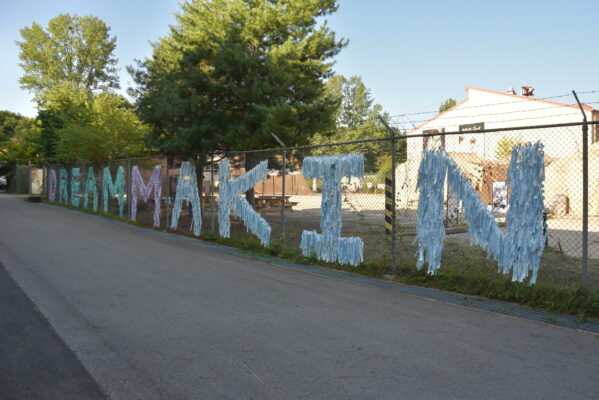Portrait 3: Hyung Joon Won, Korea

German see: Porträt Hyung Joon Won
With tonight’s third and final peace report, we are travelling to one of the most insurmountable borders in the world – the border between North and South Korea. The Korean peninsula was divided into two countries over 70 years ago as part of the Cold War. Countless families were torn apart by this very bloody war and the subsequent separation and have not been able to meet since. Just making contact with the inhabitants of the “other side” is almost impossible.
If people have not spoken to each other for three generations, how can this silence be broken? If political measures to bring people closer together have been unsuccessful time and time again, can music make a difference?
The South Korean violinist Hyung Joon Won has made it his life’s work to bring musicians from both Koreas together. He dreams of a joint concert on the demarcation line or DMZ, the demilitarised buffer zone between the two countries. A place of provocation, of decades of impermeability and the clash of two countries, two systems of power and two ways of life.
I accompany Won in a bus full of musicians from Seoul to the demarcation line. The participants in the music project are between 6 years young and over 80 years old. Some still remember the time before the separation. Others have never seen their grandparents. Four generations set out to create a symbol of peace and solidarity in a place of separation. I had previously witnessed a turbulent week of rehearsals: relations between North and South had escalated once again. It is unclear how close the next catastrophe is. And how a way back out of the escalation spiral could be possible.

I had assumed that either the government would ban the concert on the North-South border or the parents would prohibit their children from travelling under these conditions. But all the parents stuck to the project and the governments were obviously persuaded. On the day of the trip, we had a permit in our hands. Even at the checkpoint, the last sticking point we were nervously awaiting, we were allowed through after a three-hour check.
We are now only one kilometre away from North Korea. The whole area is mined. The children are only allowed to move around in clearly defined zones. My legs go weak at the thought of what could happen at any moment if a child forgets himself and runs after a ball… The GPS device no longer shows any roads, only green areas, while road traffic signs pass by outside, indicating how you would get to Pyongyang, the capital of North Korea, if it weren’t for the closed border. So close and yet so far away.
The only thing that is able to cross the demarcation line is music. I listen to the sounds of the choir and orchestra as they send their message across the deserted forests, minefields and barbed wire fences to “the others”, to the enemy, to grandparents and great-grandparents. The message: We want reunification. We belong together. We want peace between our countries.
Whether anyone hears it is uncertain. Whether it has any effect is doubtful.
Even in 2017, the year of my visit, musicians from the North did not manage to take part in the concert organised by Hyung, as would have been his dream. Many of his planned concerts were cancelled. Because a mine exploded, because a missile test or tweet caused the political situation to escalate or because supporters of the project backed out at the last minute for diplomatic reasons. But he continues to promote his idea, his belief in a peaceful future and his conviction that music is one of many steps towards bringing people closer together. Because music, according to Won, trains our ability to listen. And a world in which we listen to each other would be a more peaceful world in many ways, emphasises Hyung.

Then in 2019 I received a phone call. Hyung: “My dream came true”. My dream came true. Hyung had managed to organise a concert together with the North Korean soprano Kim Song Mi, albeit in Shanghai and not on the DMZ, but still. Despite the missile tests three days earlier.
Who knows, maybe the next concert with musicians from both Koreas will take place on the DMZ – or maybe not. Year after year, request after request, Hyung sends out a signal that connections on a human level cannot be displaced by political reality. That music, as an ambassador, continues to stand up for a common future.

Like the two previous stories, this one also shows: It always takes countless small steps and a very large reservoir of hope. The kind of hope that Vaclav Havel describes:
“Hope is not the conviction that something will turn out well, but the certainty that something has meaning, no matter how it turns out.”
I wish us all this certainty and the courage of all those who have gone before us in the many steps we dare to take to bring a little more peace into this world. Each and every one of us in our own way.
Thank you very much.
Pictures: Lea Suter
Translated by Deepl, please excuse any misunderstandings.
